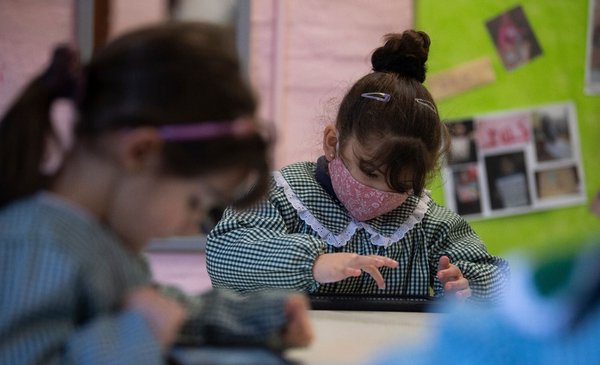Sweden started its “digital blackout” in the classroom. In December, before the Christmas break, the Stockholm-based Education Agency had approved a plan to “democratize” access to devices electronics in class. But, through a change of government, the new Minister of Education, Lotta Edholm, changed the helm, stopped the project, argued that textbooks have “advantages that no tablet can replace”, and argued that it is still not clear the impact that screens have on children’s brains.
The new Swedish government decided that they are not going to insist on using tablets in school and are going to buy more textbooks and fewer computers.
Inger Enkvist, a historical adviser to the Swedish education system and recognized worldwide for challenging the academic establishment, told The Observer that “there are beginning to be signs that you learn less with tablets” and for teachers “it is easier to keep the classroom quiet without computers that turn out to be a temptation for everyone, but especially for the laziest students.”
The controversial decision occurs in a context in which the education systems are concerned about the low learning in reading and writing: one in four schoolchildren does not reach the basic comprehension of a text at the end of primary education. But it is surprising that the initiative is led by Sweden, a country that ranked among the 11 best in reading skills in the PISA tests, when countries like Uruguay ranked below 48th place.
More textbooks and less tablet in the classroom? Although it may seem like an old-fashioned question, 16 years after the creation of Plan Ceibal, not even in Uruguay has the discussion been settled. Because “there is a cognitive and perceptual impact of reading on the screen —especially it affects attention and working memory—, but we cannot ignore the need to encourage reading on these screens as part of digital literacy and to democratize the access”, explains the researcher in Cognitive Sciences Eleonora Achugar, who also coordinates the Language area in Ceibal.
She refers to the fact that “for a student with low vision or for someone dyslexic, digital reading offers possibilities that are not found in textbooks.” And if one thinks of children as a whole, “through digital libraries, such as the one in Ceibal, access to more than 10,000 books is democratized, which in many homes would be almost impossible to obtain in print.”
Cultural capital —including the books in a home and how much children are read to from an early age— is one of the variables that, together with vocabulary, has the greatest impact on reading results.
Since there are advantages and disadvantages between opting for one platform or another, the technicians, including Achugar, are in favor of “seeking a balance and not going to one extreme.” The world that surrounds children, explains the researcher, “is not compartmentalized between digital and physical, but has a bit of everything.”
In this regard, Juan Valle Lisboa, PhD in Biological Sciences, a brain and language researcher, acknowledges that scientific studies on the advantages and disadvantages of learning with screens are not conclusive “and depend on what is being measured, how, and at what age”. . As an example, he says that reading on a mobile phone tends to generate more distractions for the child, a more fragmented reading and in which it is more difficult for them to string together a narrative logic.
That is why his colleague Achugar recommends, also based on scientific studies, “learning with textbooks during early childhood.” It happens that until the second of school the process of consolidation of literacy occurs, the child learns to decode, and must acquire the ability to concentrate to understand long texts (one page at that age).
In a more advanced stage of the student, explains Valle Lisboa, “digitization allows the student to follow hypertexts, improve their searches, connect…”. But before that, he insists, the child has a process in which he consolidates the decoding process and working memory. He sums it up with Woody Allen’s famous phrase: “I took a course on speed reading and I read War and Peace in twenty minutes. I think it said something about Russia.”
For the Swedish academic Enkvist, it is not just about a skill, but about the interests of some educators and the big tech companies. Computers “were introduced in a massive way because they offered a common goal among educators who did not want to continue with classes organized by a teacher. They claimed that this kind of teaching was boring. The technology vendors allied with these pedagogues to offer something ‘new’ and supposedly modern and useful in the job market. It was an unnatural alliance between groups with different agendas. The two allied groups accused teachers of being old-fashioned and made parents believe that digitization was the guaranteed future for their children.
The National Administration of Public Education of Uruguay does not think so. In the foundations of the new curricular transformation, it justifies the need to prepare for the challenges of the contemporary world and incorporates “digital citizenship” among the ten basic skills.
Enkvist insists: “digitization does not reinforce the educational level. If the reading and learning of the subjects is maintained, digitization can be a plus, that is, if it is added to something that works well, it is not problematic. If it is used to replace reading books or traditional subject learning, it is doubtful that it would be beneficial for students to work with computers in class.” And he concludes: “Education consists in the transformation of the brain and not in the training of the agility of the fingers”.
















